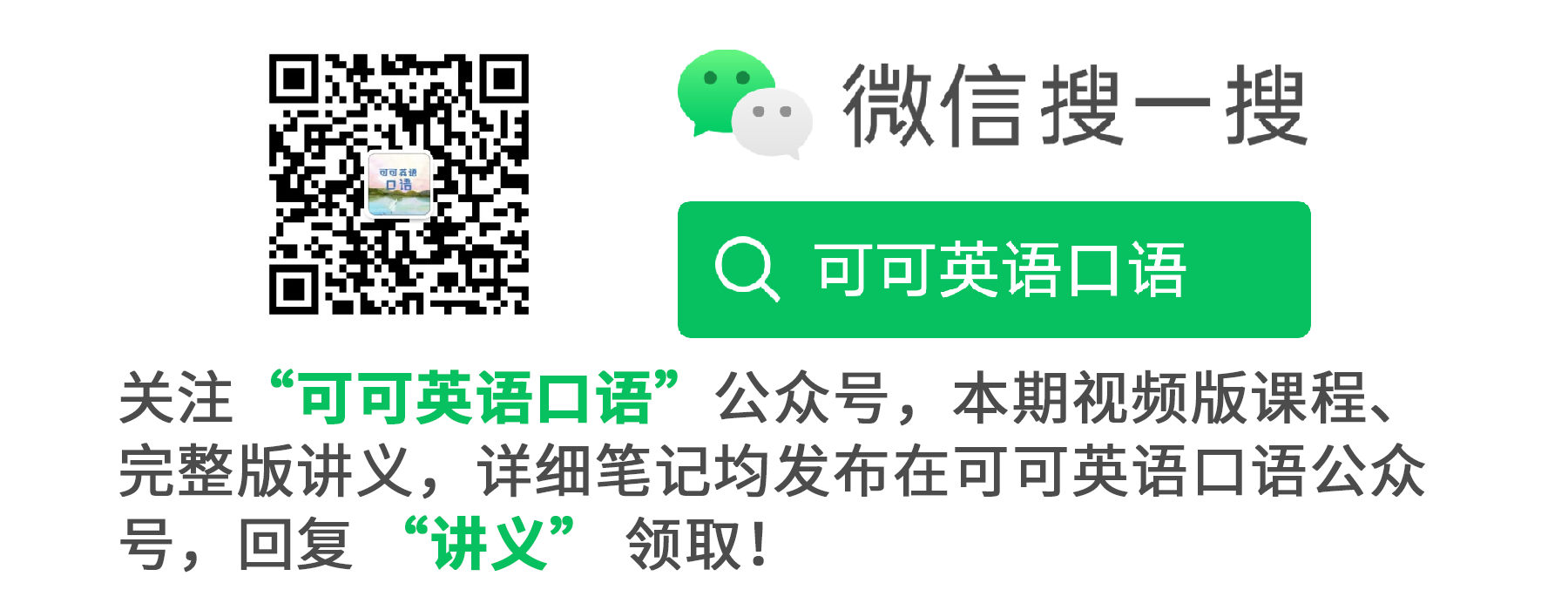(单词翻译:单击)

-课程导读
怕太长你不认真听
1.应季/反季水果怎么表达?
2."补水"用英语怎么说?
3.试着把今天学到的内容串起来!
(视频版课程发布在可可英语口语公众号)
-课程内容
应季:in-season fruits
反季节:out-of-season / off-season fruits
全年 Year-around fruits
苹果 apples;梨 pears;
柑橘 tangerines;香蕉 bananas
3月到4月 March and April
草莓 strawberries
5月到6月 May and June
樱桃 cherries; 杨梅 waxberries
枇杷 loquats
7月到8月 July, and August
西瓜 watermelons ;
甜瓜 muskmelons
桃子 peaches ;荔枝 leechees
龙眼longans
9月到10月September and October
无花果 figs ;杨桃 star-fruits
石榴 pomegranates;
猕猴桃 kiwi fruits
实用表达1:
吃应季水果有很多好处:
There are many benefits to eating seasonally:
1.In-season produce is fresher with a higher nutritional value and tastes better and sweeter.
应季农产品更新鲜,营养价值更高,口感更好,更甜。
2.If you eat in-season fruits, the cost of the produce will go down.
如果你吃当季水果,农产品的价格就会下降。
3.Eating seasonally reduces the demand for out of season produce because it's more environmentally-friendly.
季节性饮食减少了对非季节性农产品的需求,因为它更环保。
实用表达2:
Aside from drinking water, grabbing a ripe piece of fruit is an easy solution to staying hydrated because fruits contain adequate vitamins and minerals to keep your body healthy, plus they contain a large portion of water that can help quench your thirst. 除了喝水,吃一块成熟的水果是保持水分的一个简单方法,因为水果含有足够的维生素和矿物质,以保持你的身体健康,再加上它们含有大量的水,可以帮助你解渴。
Studies have shown that fruits provide nutrients, such as carotene, vitamin C, and vitamin E, which can boost your immune system.
研究发现,水果中富有营养素,比如:胡萝卜素,维生素C和维生素E,有助于提高人体免疫能力。
精彩视频版课程、口语转化表达、课程详细笔记pdf已经你为准备好,请关注“可可英语口语”公众号回复讲义获取!打开就知道更多精彩!



